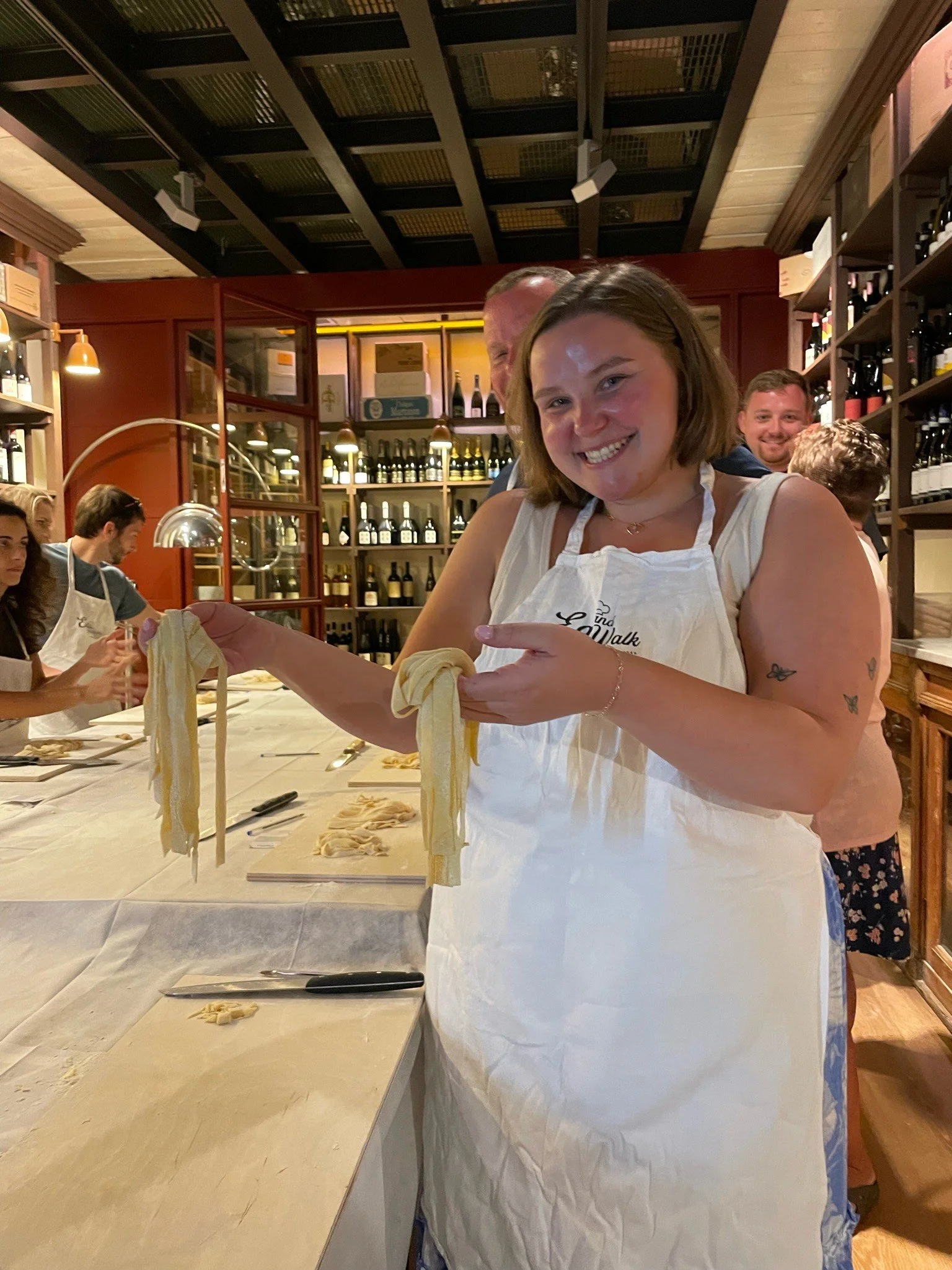Dietitians Supporting Dietitians: Community Over Competition
This post is a collaboration between Emilee Young & Georgia McArtney
When thinking about why there is so much competition and scarcity in the field of dietetics, we recognize the ways we are taught to feel inferior throughout our training and careers. From being at the bottom of the hospital hierarchy to lower paying positions or not being covered by insurance there are many aspects of dietetics that reinforce a sense of inferiority.
Dietitians (RD’s) often get into the field to help people, so we can feel guilty about advocating for our own needs or asserting our expertise. These things set us up to feel insecure in our professional role and lead us to compare ourselves to other RD’s. In private practice specifically, it’s easy to feel that clients leaving or lack of referrals is an indication of our value as an RD.
Emilee and I put our heads together to chat about competition in the field of dietetics and explore ways to seek community. Read on to find community over competition!
Learning together, not in silos
Making space for shared learning helps us recognize we’re not alone in our clinical questions, ethical dilemmas, or even our self-doubt. Being witnessed by others in your work helps validate your experience and brings so much more creativity to client care.
Here are a few examples:
Joint supervision and consultation
Journal clubs
Group messages
Co-working sessions
Through communal spaces we can recognize that we don’t have to have all the answers, and that’s ok.
Intentional Connection
So much small business marketing focuses on superficial interactions to form as many connections as possible. In my experience, this mindset can feed into a feeling of scarcity or inadequacy - that there aren’t enough clients to go around, that we always need to be reaching out to more potential connections, etc.
The idea of ‘relational marketing’ can feel like a breath of fresh air in comparison! It focuses on building deeper, longer lasting relationships that feel fulfilling to both sides. Relational marketing might be choosing a few providers you really connect with and focusing on building those relationships instead of endlessly seeking new connections. It removes the pressure on numbers and recognizes that as humans we need connection.
“One of the biggest things I’ve learned is how essential community is in this work. The competitiveness that’s often baked into our field just doesn’t align with my heart. I’ve found so much more purpose and growth by leaning into connection, collaboration, and cheering each other on.”
Advocacy and Policy Change
We can't thrive in a broken system. Supporting one another means not only offering kindness and collaboration, it also means joining forces to push for real change in the systems we’re working within.
Fair pay for dietitians is still a hurdle. Whether it's improving insurance reimbursement, advocating for higher salaries in treatment centers, or pushing back on unpaid labor (like preceptorships), we deserve compensation that reflects our value.
We also need transparency within our institutions: the Commission on Dietetic Registration (CDR) and the Academy of Nutrition and Dietetics (AND). We need reforms around equity, accessibility, and representation. Many RDs, especially those from marginalized communities, face additional barriers in accessing credentials, supervision, and leadership roles.
We acknowledge that dietetics education creates unrealistic standards and feeds into burnout.
These issues are bigger than any one RD. When we work together to challenge harmful policies and push for values-aligned change, we create a more sustainable and equitable profession.
Give Their Small Business Some Love!
There are so many ways to support fellow dietitians, especially those running small businesses or private practices. Here are a few places to start:
Leave a Google review to increase their visibility and speak to their work.
Refer clients when someone else’s approach, style, or specialty would be a better fit. We all have unique strengths, and we can't be everything to everyone.
Celebrate their wins: a new offering, a podcast appearance, or even just surviving a tough week in private practice.
Share their offerings on social media, like their posts, and engage in ways that lift their voice.
Purchase their resources or webinars when they align with your interests or continuing education goals.
“When I first entered solo practice a wonderful provider friend reminded me not to lose sight of community by buying into competition. Community over competition has become a mantra for me, grounding me in my values and calling me out when I feel scarcity creeping in.”
Conclusion: We’re Not Meant to do This Alone
We do our best work ethically, clinically, and energetically when we’re supported. When we let go of competition and embrace community, it grounds us in why we became dietitians and ultimately provides better care to our clients. Community care is self-care.
Special thank you to Emilee Young, the guest writer on this blog. Emilee is a fabulous friend and fellow registered dietitian specialized in eating disorders and perinatal nutrition support. Head over to Embrace Nutrition Counseling to learn more about her practice!
If you are struggling with your relationship with food and body image, reaching out for support is one of the most empowering things you can do. McArtney Nutrition offers specialized support for those navigating eating disorder recovery or living with chronic illnesses. Reach out for a discovery call to chat about finding food peace and body acceptance!


